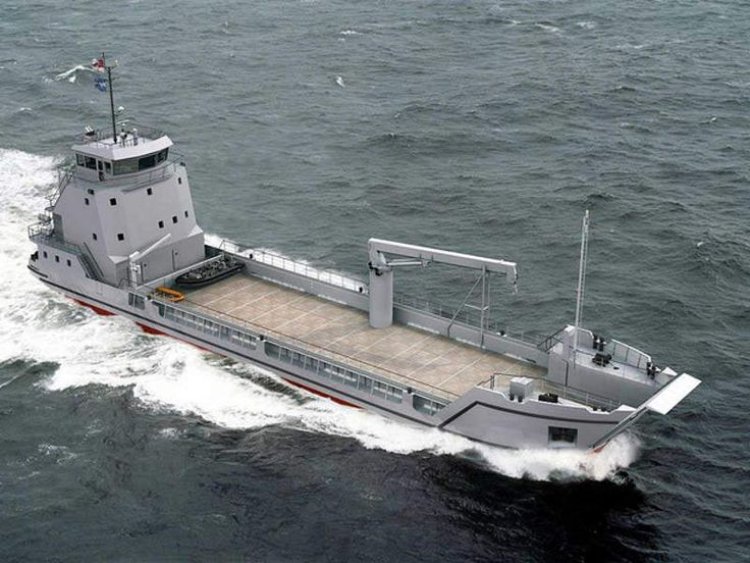How Can Fleet Logistics Support Improve Operations
Discover how optimized fleet logistics support can significantly boost business operations through improved efficiency, cost reduction, and real-time data-driven decision-making.
Share this Post to earn Money ( Upto ₹100 per 1000 Views )

In today’s fast-paced and highly competitive marketplace, businesses that rely on transportation and delivery systems are constantly seeking new ways to improve efficiency, reduce costs, and maintain a competitive edge. One of the most powerful, yet often underutilized, strategies is fleet logistics support.
So, how can fleet logistics support improve operations? The answer lies in its ability to streamline fleet management, enhance visibility, boost productivity, and reduce risks across the supply chain.
What is Fleet Logistics Support?
Fleet logistics support refers to the systems, services, and infrastructure put in place to manage, monitor, and maintain a fleet of vehicles—be it trucks, vans, or delivery vehicles—used in the transportation of goods or services. This support can encompass everything from vehicle tracking and routing optimization to maintenance scheduling, fuel management, compliance tracking, and driver performance monitoring.
Key Ways Fleet Logistics Support Improves Operations
1. Enhanced Route Optimization
One of the biggest challenges for fleet operations is managing routes efficiently. Poor routing leads to delays, fuel wastage, and increased wear and tear on vehicles. Fleet logistics support systems, equipped with GPS and AI-based route planning tools, analyze real-time traffic, weather conditions, and delivery windows to suggest the most efficient routes.
2. Real-Time Visibility and Tracking
Fleet logistics platforms allow managers to track every vehicle in real time. This level of visibility helps businesses respond quickly to unexpected delays, reroute vehicles if needed, and ensure accountability throughout the delivery process.
3. Predictive Maintenance and Reduced Downtime
Regular vehicle breakdowns can be a significant drain on productivity. With fleet logistics support, businesses can implement predictive maintenance schedules based on real-time data, such as engine diagnostics and mileage.
4. Improved Driver Performance and Safety
Fleet support systems monitor driving behavior such as harsh braking, speeding, and idling. This data can be used to train drivers, enforce safety policies, and reward top performers.
5. Fuel Efficiency and Sustainability
Fleet logistics support tools help track fuel consumption patterns and identify inefficiencies. Optimized routes, less idling, and better driving behavior all contribute to reduced fuel usage.
6. Regulatory Compliance and Reporting
Staying compliant with transportation regulations can be daunting. Fleet logistics solutions automatically log hours of service, vehicle inspections, and licensing requirements.
The Strategic Advantage: Data-Driven Decisions
Modern fleet logistics support systems integrate with enterprise resource planning (ERP) and customer relationship management (CRM) tools. This enables businesses to analyze data across departments, gaining insights into patterns, forecasting demand, and improving inventory management.
Smart analytics empower businesses to make strategic decisions—not just tactical ones—enhancing long-term growth and scalability.
Case Example: Logistics in Action
Consider a regional food distribution company that implemented an advanced fleet logistics support system. Within six months, they reported:
-
A 20% reduction in fuel costs
-
A 15% increase in on-time deliveries
-
A 25% improvement in customer satisfaction ratings
-
A 30% drop in unscheduled vehicle maintenance
These improvements translated into substantial cost savings and a stronger market presence.
Future Trends in Fleet Logistics Support
As technology evolves, so will the capabilities of fleet logistics systems. Key trends to watch include:
-
AI and Machine Learning: For smarter, more predictive logistics management
-
IoT Integration: With connected vehicles and smart sensors for real-time diagnostics
-
Autonomous Fleets: Long-term goal, but already influencing logistics planning
-
Cloud-Based Platforms: For scalable and remotely accessible logistics solutions
Businesses that adopt these innovations early stand to gain a significant competitive edge.
Final Thoughts
In an era where operational efficiency can define a business’s success or failure, investing in fleet logistics support is no longer optional—it’s essential. From real-time tracking to data analytics and regulatory compliance, fleet logistics enhances every aspect of a company’s operations.
Whether you're a small delivery firm or a global logistics provider, embracing modern fleet support tools will streamline your operations, reduce costs, and deliver the performance edge you need in today's dynamic economy.
















